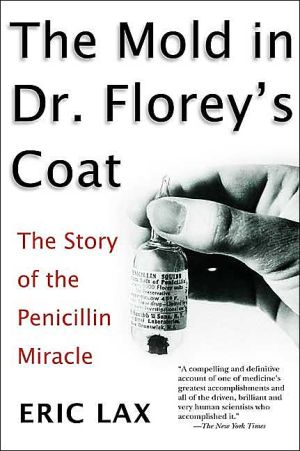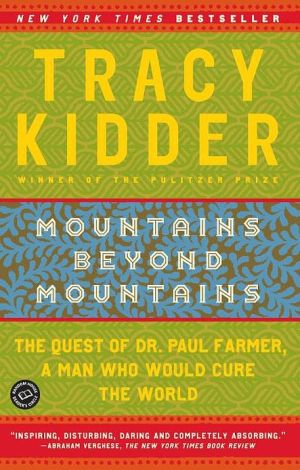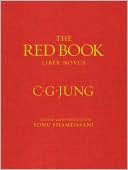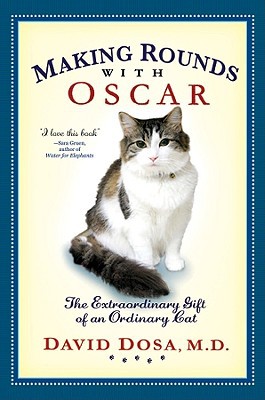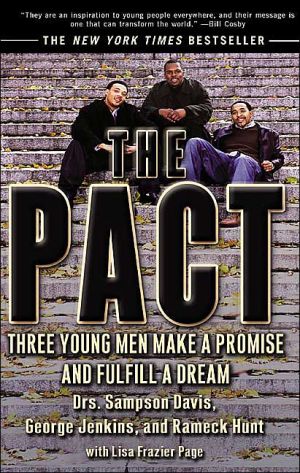The Mold in Dr. Florey's Coat: The Story of the Penicillin Miracle
"Admirable, superbly researched . . . perhaps the most exciting tale of science since the apple dropped on Newton's head."\ —Simon Winchester, The New York Times\ Alexander Fleming's discovery of penicillin in his London laboratory in 1928 and its eventual development as the first antibiotic by a team at Oxford University headed by Howard Florey and Ernst Chain in 1942 led to the introduction of the most important family of drugs of the twentieth century.\ Yet credit for penicillin is largely...
Search in google:
"Admirable, superbly researched . . . perhaps the most exciting tale of science since the apple dropped on Newton's head."—Simon Winchester, The New York Times Alexander Fleming's discovery of penicillin in his London laboratory in 1928 and its eventual development as the first antibiotic by a team at Oxford University headed by Howard Florey and Ernst Chain in 1942 led to the introduction of the most important family of drugs of the twentieth century. Yet credit for penicillin is largely misplaced. Neither Fleming nor Florey and his associates ever made real money from their achievements; instead it was the American labs that won patents on penicillin's manufacture and drew royalties from its sale. Why this happened, why it took fourteen years to develop penicillin, and how it was finally done is a fascinating story of quirky individuals, missed opportunities, medical prejudice, brilliant science, shoestring research, wartime pressures, misplaced modesty, conflicts between mentors and their protégés, and the passage of medicine from one era to the next. The New York Times - Simon Winchester By reminding us of the stellar contributions to that same story that were made by the Oxford University team of Howard Florey, Ernest Chain and a hitherto utterly anonymous chemist named Norman Heatley, Mr. Lax has performed a service to science of which he should be proud and all must be grateful.
Introduction: The Reclaimed Life11.The Quiet Scot72.The Rough Colonial Genius323.The Money Talks514.The Temperamental Continental595.The Micro Master696."Without Heatley, No Penicillin"857.Eight Mice1148.Blitzed1369."Will These Plans Come to Grief?"15710.The Friend in Deed17111.The Kilo That Never Came19712.The Laurel Wreath of Credit21013.The Thinking in Stockholm23014.The Makers of Great Medicine249Notes265Bibliography289Acknowledgments292Index295
\ From the Publisher"Beautifully researched and written, alive with scientific and human insight, Lax's fine book likely will become the classic account of penicillin's true medical beginnings."—Los Angeles Times Book Review\ \ \ \ \ Simon WinchesterBy reminding us of the stellar contributions to that same story that were made by the Oxford University team of Howard Florey, Ernest Chain and a hitherto utterly anonymous chemist named Norman Heatley, Mr. Lax has performed a service to science of which he should be proud and all must be grateful.\ — The New York Times\ \ \ Publishers WeeklyThis book sets out to correct the misapprehension that Alexander Fleming, the first scientist to discover the antibacterial properties of the mold Penicillium notatum, was also responsible for developing the wonder drug that saved countless lives and ushered in the era of modern medicine. Although Fleming coined the term "penicillin," his tentative research on the mold produced few valuable results and was prematurely abandoned. More than a decade later, in 1940, a pathology team at Oxford University-headed by Howard Florey, Ernst Chain and the now almost forgotten Norman Heatley-resumed Fleming's preliminary work and eventually developed the world's first viable antibiotic. Although Fleming, Florey and Chain shared a Nobel Prize in 1945 for their revolutionary work, accolades and media attention were disproportionately bestowed on Fleming, and in the popular imagination he was transformed into the sole creator of penicillin. Lax (Woody Allen; Life and Death on 10 West) has written a commendable account of this historical oversight, conveying the thrill of discovery during the upheaval of WWII and skillfully translating the abstruse technicalities of lab work and medical jargon into enjoyable prose. Yet this book also shows that monumental discoveries are not always born of monumental stories, and the narrative contains trivial details and petty grievances that made up these scientists' circumscribed lives. Lax's treatment is disciplined and focused, but it would have been improved by a broader historical sweep and more involved discussions of penicillin's impact on the pharmaceutical industry. 18-page b&w photo insert not seen by PW. (Apr.) Copyright 2004 Reed Business Information.\ \ \ \ \ Library JournalLax, whose previous Life and Death on 10 West and Woody Allen: A Biography drew favorable reviews, turns his attention to the fascinating story surrounding the development of penicillin during World War II. Many people believe that Alexander Fleming was solely responsible for penicillin, yet he was only one of the players. Though Fleming initially reported the discovery of penicillin, several Oxford scientists, led by Howard Florey, worked on isolating, purifying, producing, and testing the antibiotic on humans. Eventually, Florey and his colleague Ernst Chain shared the Nobel prize with Fleming. Relying heavily on interviews and personal papers, Lax consistently illustrates the major impact of the war on their research-the antibiotic was desperately needed, yet they were stymied by a constant lack of funding and the threat of enemy soldiers destroying their work. Unlike previous Florey biographies or historical accounts of penicillin, Lax focuses on the early stages of research as seen through the eyes of the Oxford scientists. This fast-paced book is recommended for all public libraries and history of medicine collections.-Tina Neville, Univ. of South Florida at St. Petersburg Lib. Copyright 2004 Reed Business Information.\ \ \ \ \ Kirkus ReviewsVeteran journalist and author Lax (Woody Allen, 1991, etc.) takes a revealing look back at the time when world-altering science was done on a shoestring, bringing to brilliant life the story of the first great antibiotic. While Alexander Fleming is the name most often associated with penicillin, it was the Oxford team of Howard Florey, Ernst Chain, and Norman Heatley, the author reminds us, that turned Fleming's 1928 discovery of the potent mold into a life-saving miracle drug while working under Spartan and dangerous conditions. Responding to the threat of an imminent Nazi invasion, Heatley proposed that in case they were forced to abandon their work and flee, they preserve the mold spores by rubbing some into the fabric of their clothing. (Hence the title.) Lax first captures the personalities of each of these four men and then moves on to Florey's efforts to scrounge together the funds for his team's work. An initial grant from the Medical Research Council for materials was £25, the equivalent then of about $100. Funds from the Rockefeller Foundation were more generous, but ingenuity and improvisation remained essential. Heatley cobbled together an apparatus to extract penicillin from mold juice using glass tubing, assorted pumps, copper coils, colored warning lights, and even an old doorbell. The meager amounts of penicillin the team was able to produce showed therapeutic potential, but larger quantities were needed to run the necessary clinical trials. Unable to interest British pharmaceutical companies, they turned to the US, offering to share all their knowledge of how to produce penicillin in return for a supply. Florey and Heatley's dog-and-pony show in the US, the American rolein the penicillin story, Fleming's public behavior when the news of penicillin's clinical value became known, the Nobel Prize expectations of those involved all make for fascinating reading. Even sex rears its intriguing head, with both Florey's wife and mistress getting into the act. Informative and thoroughly enjoyable science history. Agent: Owen Laster/William Morris\ \
